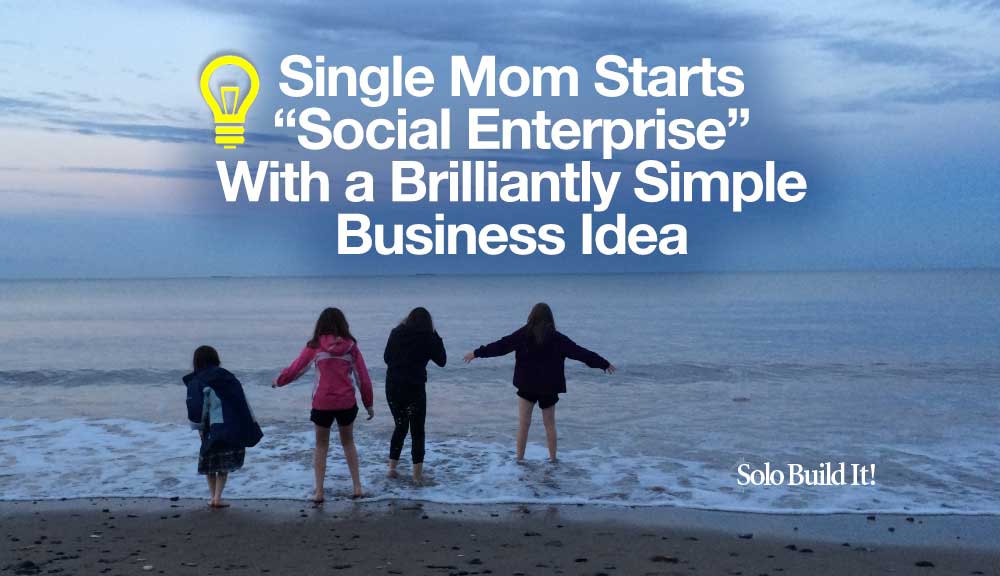
I knew I wanted to come back to SBI! for our new company website because it was a familiar, homey feeling. I had been ‘out in the wild’ with a couple of other platforms — much more expensive than SBI!, I might add — and it was an awful experience. A complete waste of money and time; I felt on my own and isolated.Adele Sweeney from www.crafting4good.org
Adele Sweeney first encountered Solo Build It! in 2006. At that time she was looking for a way to support herself as a single parent.
Based on her deep interest in the interactions between creativity, wellbeing and mental health, she chose crafting as her niche. Over the years, she added an online community with a paid membership and an eCommerce store to her site. She left SBI! and tried other platforms to see if they’d be a better fit for her business model.
Her business was growing, but something felt amiss. Adele’s focus had always been on delivering the very best experience for her visitors and customers, even if it meant earning less. Her accountant, however, told her she needed to “squeeze” more money out of her buyers.
That didn’t sit well with Adele’s values. She contemplated giving up on her business altogether and starting a charity instead. In the end, she found the perfect “marriage” for her business skills and her social calling in the form of a “social enterprise.”
What that means exactly, and why she came back to SBI! to make this new enterprise a success, is the story you’re about to read.
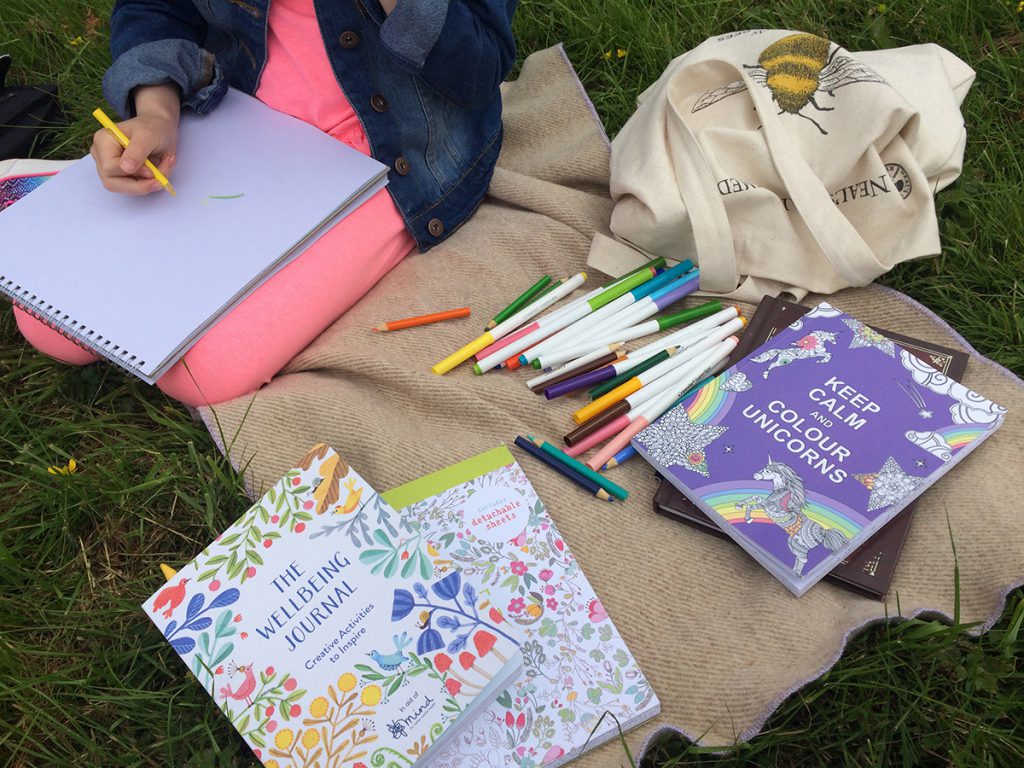
1. Adele, your printable crafts shop at www.crafting4good.org has recently been featured as a social enterprise with a brilliantly simple business idea. Can you tell us more about that?
Crafting4Good CIC is a social enterprise, which means we are a business that has a social purpose and is “not-for-personal-profit.” Any profits/surplus are reinvested into the business and/or the community it’s set up to serve.
The “CIC” part stands for “Community Interest Company,” which means we are officially registered with and overseen by the CIC Regulator, a Government body in the UK, as well as Companies House.
Our social purpose is to improve wellbeing and mental health through creativity, especially for those who can’t usually afford or access fancy tools or supplies. We do this through selling digital, downloadable supplies and making best use of unwanted craft donations.
We refer to this as Robin Hood Creativity, because people are helping each other, whether that’s through buying our downloads, donating supplies or sharing their skills for free.
It all goes towards helping others. We believe that access to creative “me-time,” and the benefits it can bring to mental health and wellbeing, shouldn’t depend on the amount of money you have.
Adele has taken this concept to the next level. With her social enterprise “Crafting4Good,” she makes crafting accessible to those who couldn’t otherwise afford it. Plus, she helps reduce waste, as she collects and redistributes unwanted craft supplies.
Her business idea has been called “brilliantly simple” for good reason!
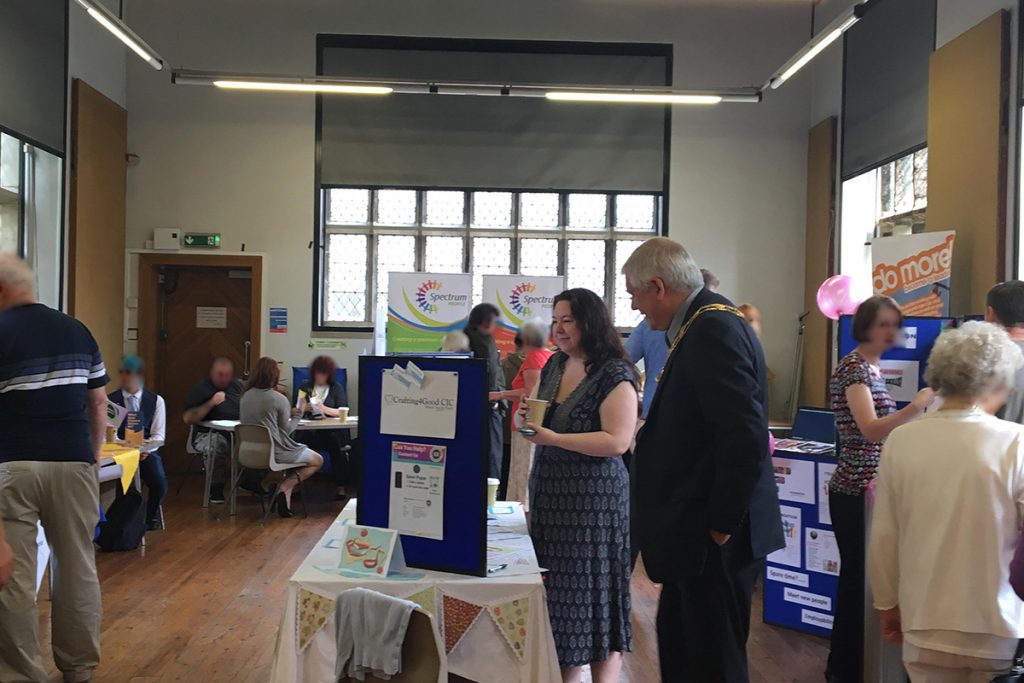
2. You started out as a “regular” online business. What made you decide to transform your crafting business into a not-for profit organization?
I started out with a website through Solo Build It! that showed people how to craft using resources on the internet as well as our free downloads (these were so cringe-worthy when I look back now!).
This educational site evolved into an online community and then an eCommerce store. Throughout all of this, my focus was always on overdelivering for our visitors and customers and showing them how to get the most out of our downloads. For example, instead of selling them 2 kits, we’d show them how to make 2 cards from just one download.
However, selling 2 kits would have made more money. An accountant pointed out that I needed to be more “aggressive” and squeeze as much out of our customers as possible. This just wasn’t me. I was more interested in the benefits for our customers than how much money we made.
I started thinking a regular business was not for me, and that I’d made a huge mistake starting the shop. I researched how to start a charity; in the process I discovered the concept of a “social enterprise.” I realised that’s what I should have been doing all along!
We were already operating along similar lines, so why not make it official and legally change into a social enterprise?
It is much more satisfying for me now, knowing there’s a “reason” behind everything we do, that it’s not just a business. It’s a business with a social purpose. For me, that’s important.
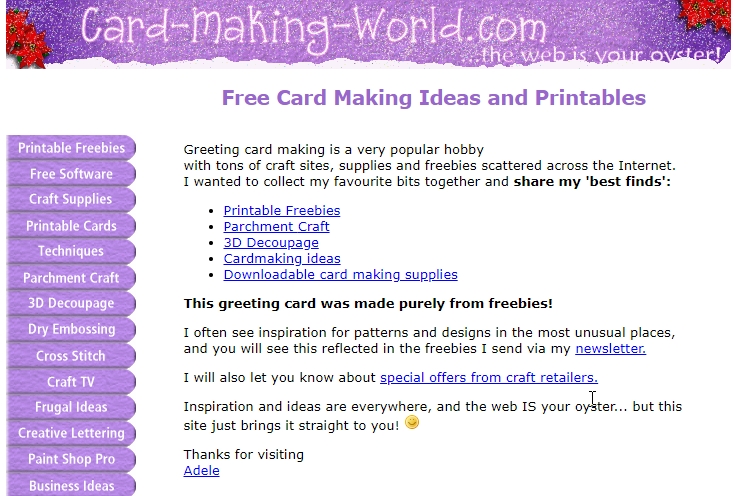
“A social enterprise is a cause-driven business whose primary reason for being is to improve social objectives and serve the common good.”
But, contrary to a charity, a social enterprise relies on its revenue to achieve its social mission rather than on grants or outside funding. Like Adele said, it’s a “business with a social purpose.”
For Adele, it was the perfect solution. She could follow her passion for providing crafting resources to craft lovers worldwide, and stay true to her beliefs. The more profit her business made, the more people she could help.
The skills she acquired from building her first “regular” online business with SBI! have proven invaluable for making her social enterprise flourish.
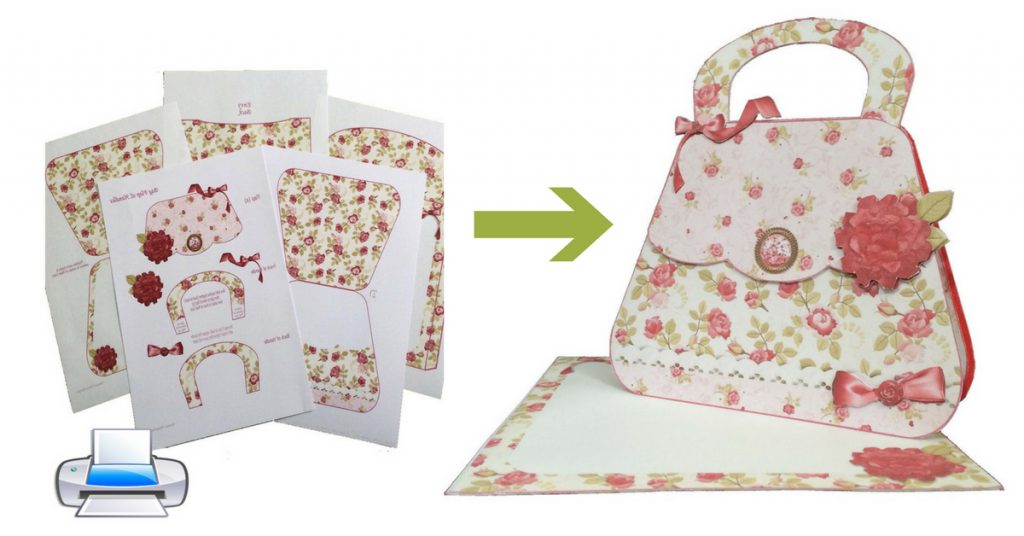
3. We are proud that you came back to SBI! to relaunch your business in its new format. Can you share your reasons for choosing SBI! over other platforms?
I knew I wanted to come back to SBI! for our new company website because it was a familiar, homey feeling. To be part of the SBI! community means being surrounded by like-minded solopreneurs who understand the ways of website building and content creation.
It was also the fact that SBI! makes things so easy, what with Brainstorm It!, and all the technical stuff being taken care of for you. One recent example is GDPR. If a major change like this happens, SBI! takes care of it. With other platforms, you are often being left to figure things out on your own.
I had been “out in the wild” with a couple of other platforms — much more expensive than SBI!, I might add — and it was an awful experience. A complete waste of money and time; I felt on my own and isolated.
I wanted to come back to the place that I was familiar with. The place that had started me off on this journey, where it felt “safe” to bring up our new not-for-profit “baby.” 😊
Then it becomes super important to be part of a solopreneur community where you know you’ll always find like-minded people who can answer your questions, understand your frustrations, and celebrate your achievements with you. The Solo Build It! forums are renowned for their “family feel,” and the “pay-it-forward” mentality of its members.
It’s one of the SBI! components that our members value most, along with the Action Guide and the relevant business-building training and information.
I had to chuckle about Adele’s comment about “being out in the wild.” That’s exactly what the “make money online” world is… a wild, lawless place where everyone is left to fight for their own, and the “gurus” try to sell you their newest system with promises of instant income.
Even the big names, like Wix and Squarespace, promise you that it’s easy and fast to build a site. Well, that may be true. But a “site” is only one part of building a business. And that’s what you’re here for, right?
4. How does your business make the money that you then reinvest into the community you serve?
We are about to move in new directions to generate income, but principally we sell creative downloads that people print off and make up. They can sell what they make for charity and good causes, or even for themselves on a small home-based scale.
We have a wide range of greeting card kits, papercraft kits, gift boxes to make, printable journals, organisers, calendars and diaries, etc. These can be used by individuals or for group activities.
For example, we have sold our downloads to retirement homes, community groups, and even bigger organisations looking for quick and convenient activities for their members. Plus, they can use our downloads to fundraise too, if they wish.
Groups like the downloads because they are reusable. You buy some bundles and when you’ve used them all up, or more people turn up to your craft session than expected, just print more as and when required. Similarly, if you sell out at your craft fair, just print and make more.
The bundles are the best value for customers and us, because we split the revenue with the home-based designers who sell on our shop. So we are helping them earn a bit extra too.
Now that we have moved into a community centre, our new direction is to sell “real” supplies with an eco-friendly element such as biodegradable glitter. We also focus on making the best use of donations from the public and from companies that send us their end-of-line stock.
We hire out specialist tools and equipment or provide new donated items, with the donor’s consent, at a much reduced cost to beneficiaries both online and off. In the future, we hope to be able to open a community shop.
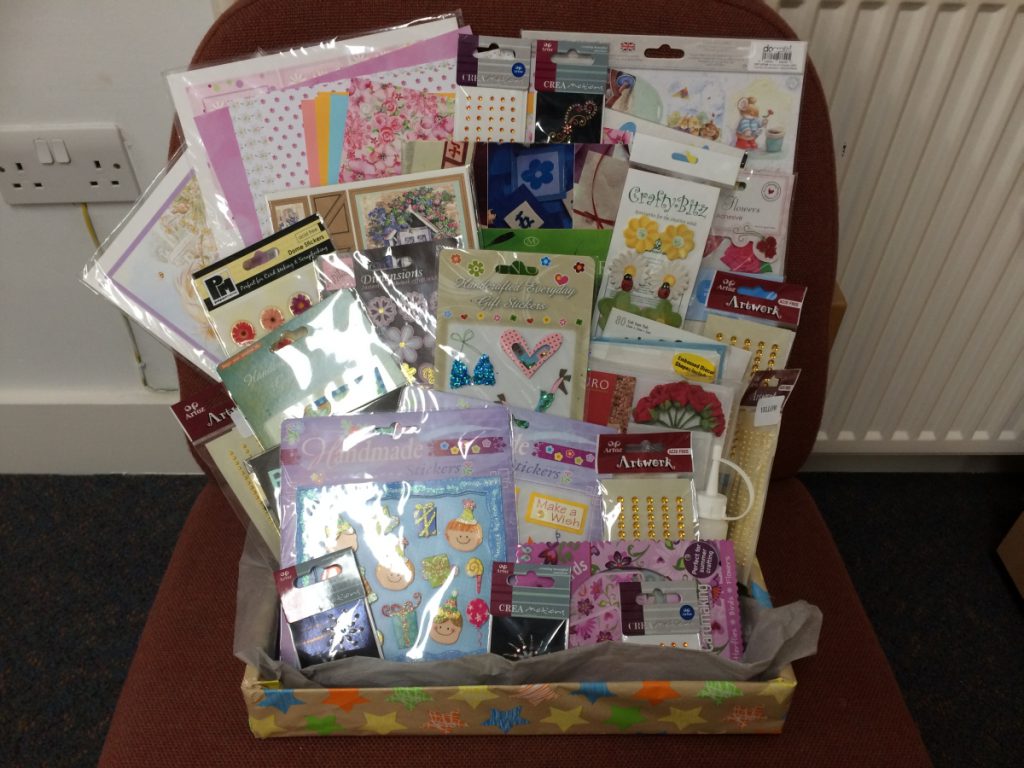
Income from these sources is reinvested. It helps us be sustainable, allowing us to provide resources and free donations to community groups and organisations. The more income we generate, the more we can reinvest and the bigger impact we can have.
It’s lovely to get photos back from groups we have sent donations to! We also have a small online community, with members who joined us back in the days of our first SBI! website. We subsidise the membership, so that those members can be part of a private, social media free creative community for a very small fee.
 But she doesn’t just offer the downloads. True to her belief in overdelivering, she offers tutorials with written instructions, photos and videos to help her customers make the most of their purchase.
But she doesn’t just offer the downloads. True to her belief in overdelivering, she offers tutorials with written instructions, photos and videos to help her customers make the most of their purchase.
Take a peek at this lovely example of a pop-up box card-making tutorial.
As additional ways to monetize, Adele has started selling hard goods like eco-friendly craft supplies and unwanted donations. They even plan to open a brick-and-mortar store.
As an online business owner, you should always diversify your income streams. Never put all your monetization eggs in one basket (or box! 😉).
5. How many hours per day (or week) do you work on www.crafting4good.org? Are you the only person, or do you have help?
As you might expect, this is a full-time job! I work far too many hours if you ask my family, but it has its benefits too, e.g., flexibility, the freedom to work those hours when and where I want. These days, that can even be from my phone on a beach!
I get amazing help from volunteers. We have 2 volunteer directors, one of whom has been helping with customer service ever since the early days with SBI!, when I started back in 2006. I also get help from people who occasionally submit content or make up our downloads and do instructions or videos.
More help is needed though, and always welcome!
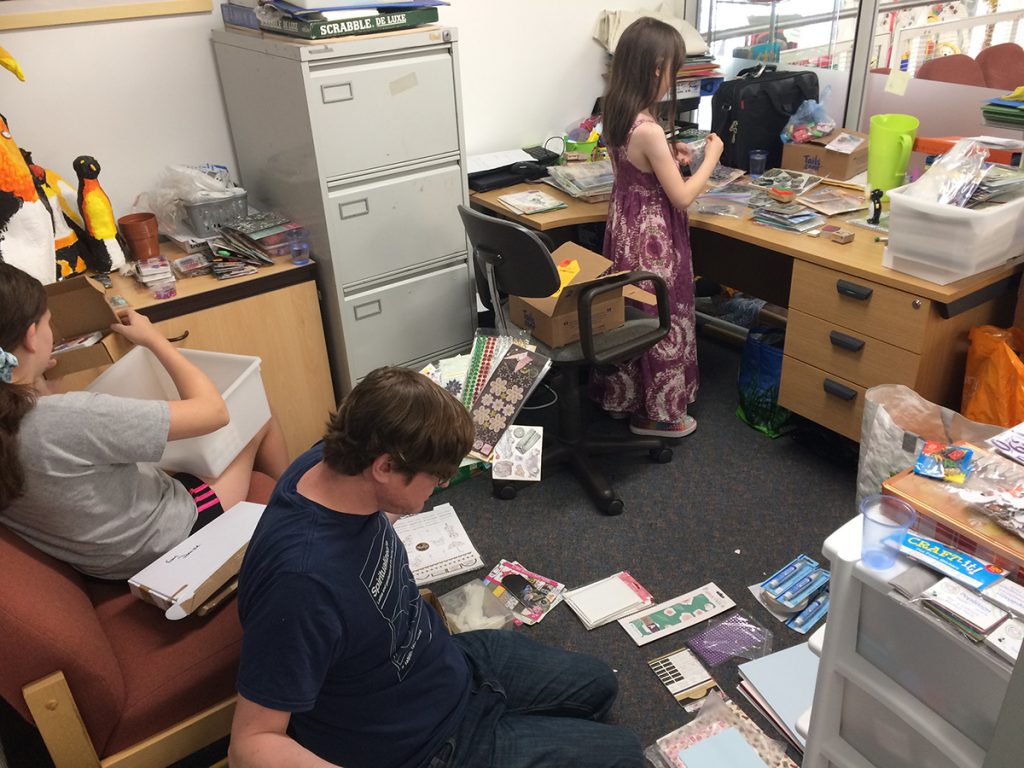
However, if you monetize via active methods, like producing and selling your own products, the necessary hours may stay the same, or even increase over time. Depending on how big you want to grow your business, there comes a point where you need to hire help.
Adele is fortunate to have reliable volunteers. Other SBI! members enlist the help of their spouse or children, recruit a business partner or build a team of employees and freelancers.
You don’t have to grow that big, of course. You can stay “solo” and still earn a significant income. But who knows, you may discover your “inner entrepreneur” along the way and dedicate yourself to growing your business into a full fledged enterprise, just like Adele does with her social enterprise.
6. What has been your biggest challenge so far as an online business / not-for-profit business owner? Are the challenges very different between the two types of businesses?
Aside from the hefty legal and financial learning curves, our biggest challenge has been time and therefore cash flow. Because we’re such a small team, and it takes a lot of work to keep up with everything that needs doing, like in any business, it means I can’t dedicate enough time to creating promotions, writing new content, posting to our social media channels, etc.
In short, I can’t do enough of the things that keep us in people’s minds and help generate sales.
As a consequence, campaigns and therefore sales and cash flow can be erratic. We need to improve this if we are to do the best we can for our beneficiaries. There is so much more to do now that we are a CIC than before, like writing funding bids, organizing events, networking and meeting with other third sector organisations.
These are all great for creating new connections and opportunities, but take up whole chunks of our available time. It’s worth the time investment though. Here are some of our most recent achievements:
- We partnered with our local library network to create a craft lending library in 2019.
- We secured a £500 ($650) grant from our local council for more time in our office space.
- And the big one… we just got awarded £10,000 ($13,000) funding from the Big Lottery Fund (our national lottery) to open a Creative Hub to sort, organise and sell all the donations, recruit volunteers, etc.
Then there’s sorting and organising donations. It’s essential to know what we have “in stock,” so that we quickly find what someone asks for.
Being stuck in the middle between “not quite charity” and not for-profit business has its challenges too, in addition to all the legal stuff and general company administration.
All of this was a huge change for me, from purely working online with a self-employed business — which was already busy enough.
To address some of these issues, we plan to introduce an affiliate programme for our best customers and selected bloggers/websites. This will give us more reach and help boost sales from the store.
Solo Build It! is designed to shelter you from as many “time wasters” as possible. Each step of your business-building process is clearly laid out in the Action Guide. All the tools you need are in one place; you don’t have to search for the best “plugin” or worry that an upgrade may make it incompatible with your site.
We distill hundreds of articles down to the must-know information. If a new development requires you to take action, you will know what to do and how to do it. We may even build a tool for it! HTTPS conversion and GDPR are two recent examples.
All of this takes some of the pressure of your shoulders, and you have more time to focus on building your business. But make no mistake! You still need to bring a good measure of BAM (Brain Attitude Motivation) to turn your idea into an income-generating business.
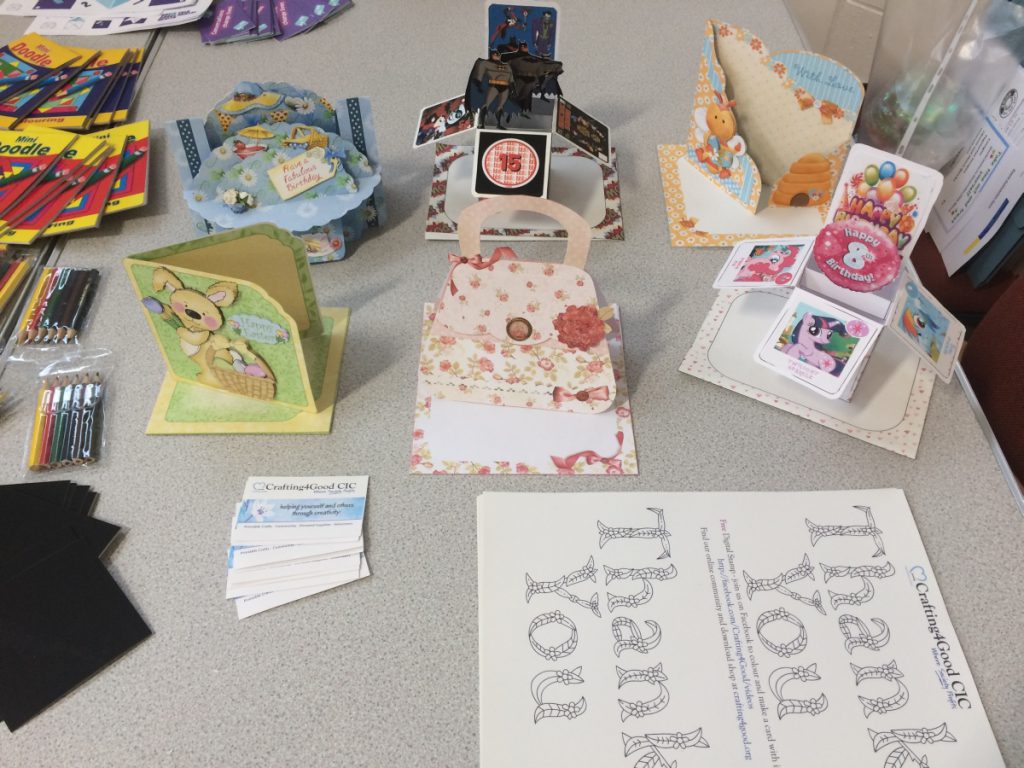
7. What do you enjoy most about being a “social entrepreneur”? How has it changed you, your life, your family?
I won’t pretend that sometimes I wonder what on earth I’ve got myself into but the one thing to keep in mind is that it’s all for a wider purpose. When I step back and realise that what I do is positively impacting the lives of others, it makes me proud!
Looking at the smiles on the faces of people in my photos, the joy they’ve had from simple craft supplies, gives me such a warm, satisfying feeling, which makes it worthwhile, and makes me feel like at least I’m doing all this for a reason beyond just making money.
In terms of how it has changed my or my family’s life, it’s largely an extension of before in that I’m still my own boss with the maximum flexibility anyone can have.
I try to work set hours but having teenagers and young kids means things are constantly prone to change, so the flexibility is crucial. I can still decide where and when I work, and I can still respond to the demands of family as I did before.
There are changes though, such as being much more social and meeting lots of new, interesting people.
The biggest change is probably that because I now run a registered CIC, I’m being taken seriously (as opposed to being “just” a solopreneur). That means I get a lot of opportunities that wouldn’t have been possible before.
Finally, my family seems to realise that what I do is actual work!
That doesn’t mean you’ll work fewer hours, as we’ve heard in Adele’s answer to question number 5. But it means you can decide when you work. You can also take your work with you, when, for example, your parents need you to help out in their household because of an emergency, or when your adult daughter has her first child.
Then there’s that sense of achievement, of having a positive impact on other people’s lives, with something that you created yourself.
Naturally, there are also downsides to running an online business. Like, when you try to explain what you do, and are met with incomprehension at best, and an air of condescension at worst. Even your friends and family may think that all you do is “play around on your computer.”
In Adele’s case, her family’s and the public’s attitude only changed after she registered her business. Now people finally give her the credit she deserves.
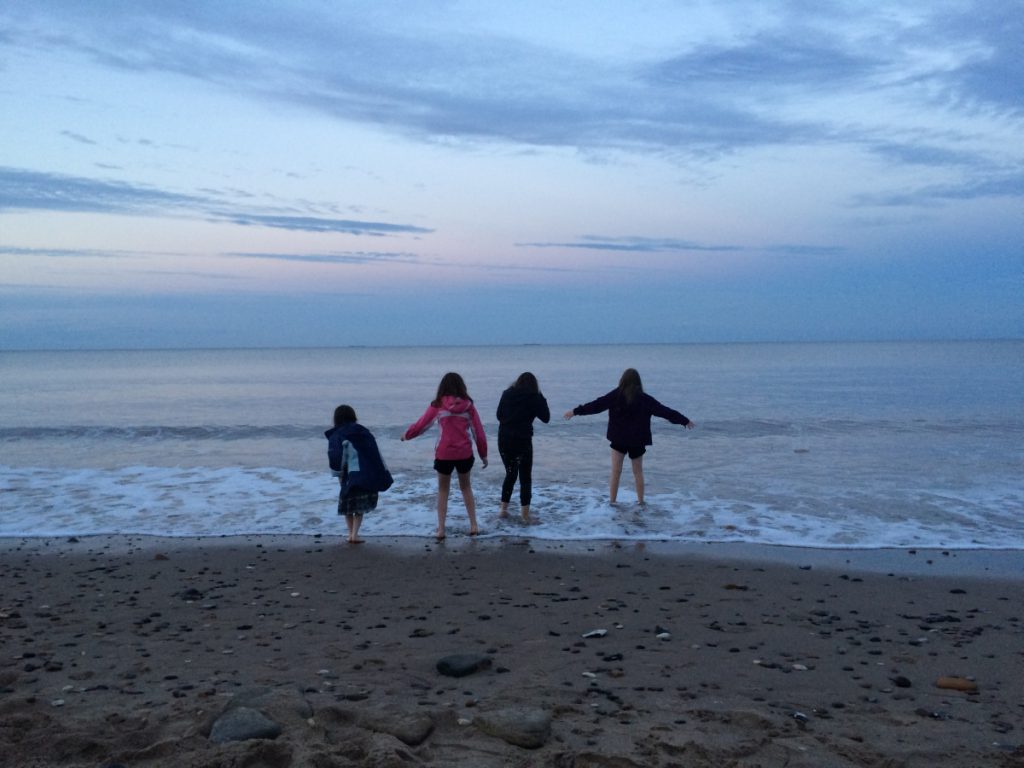
8. And finally… What’s your top tip for someone who’d love to start a social enterprise like you did?
Do your research. There are so many imaginative ways of being a business and helping society or the environment at the same time. Try to find people to help you if you’ve been used to doing it all yourself with your solopreneur business.
From what I can tell, like-minded people usually get together and start a social enterprise, rather than start from being “solopreneurs” who are used to doing everything themselves; it helps to have support from others who understand what you’re trying to do.
You should also ‘network’ and get to know your local businesses, community spaces and people involved in the voluntary and community sector in your area. The knowledge and connections this brings will prove invaluable.
You don’t have to become a registered CIC (in the UK at least), but I think it helps prove you’re authentic and willing to follow regulations, be transparent (your reports are all public), and be accountable.
It’s hard work, and money can be very tight. But it’s also very satisfying, and still provides a work/life balance.
Judging by the numbers of new social enterprises being registered every month here, it’s a growing trend that I believe will continue. People increasingly want to do something about social and environmental issues by supporting and starting businesses with benefits.
Key Takeaways for Solopreneurs With a Social Calling
- Have you shied away from starting your own business because it felt too self-serving? Now you know that there are alternatives where you can have a business with a social purpose.
- Being a solopreneur can be a lonely affair. When deciding which platform to use for building your web-based business, make sure there’s a helpful and active community, like the Solo Build It! forums.
- Research and evaluate different ways to monetize before you start. Whether you build a “regular” business or a social enterprise, they both need to generate a profit. The SBI! Action Guide dedicates two full DAYs (aka chapters) to planning your monetization.
- Be realistic in your expectations. A solopreneur lifestyle comes with many benefits, but it’s not a “golden ticket” where you make tons of money for little work.
- Be prepared that people may not take your business seriously unless you put some “official” stamp on it. Is registering or incorporating your business worth the additional legal obligations? Only you can decide.
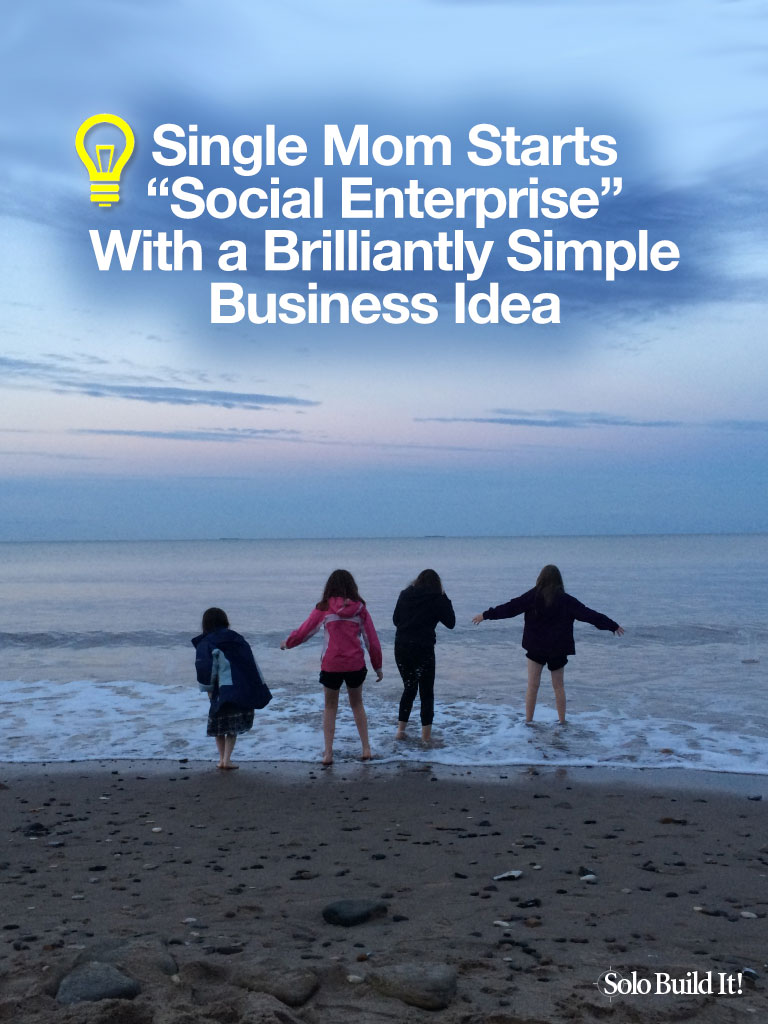
Latest posts by Margit Streifeneder (see all)
- From Zero to 1 Million Fans: A Community-Driven Success Story - October 16, 2025
- Six Figures on Her Terms: A Lifestyle Business Success Story - September 25, 2025
- From Sheds to Sales: A 20-Year Digital Product Success Story - September 11, 2025


